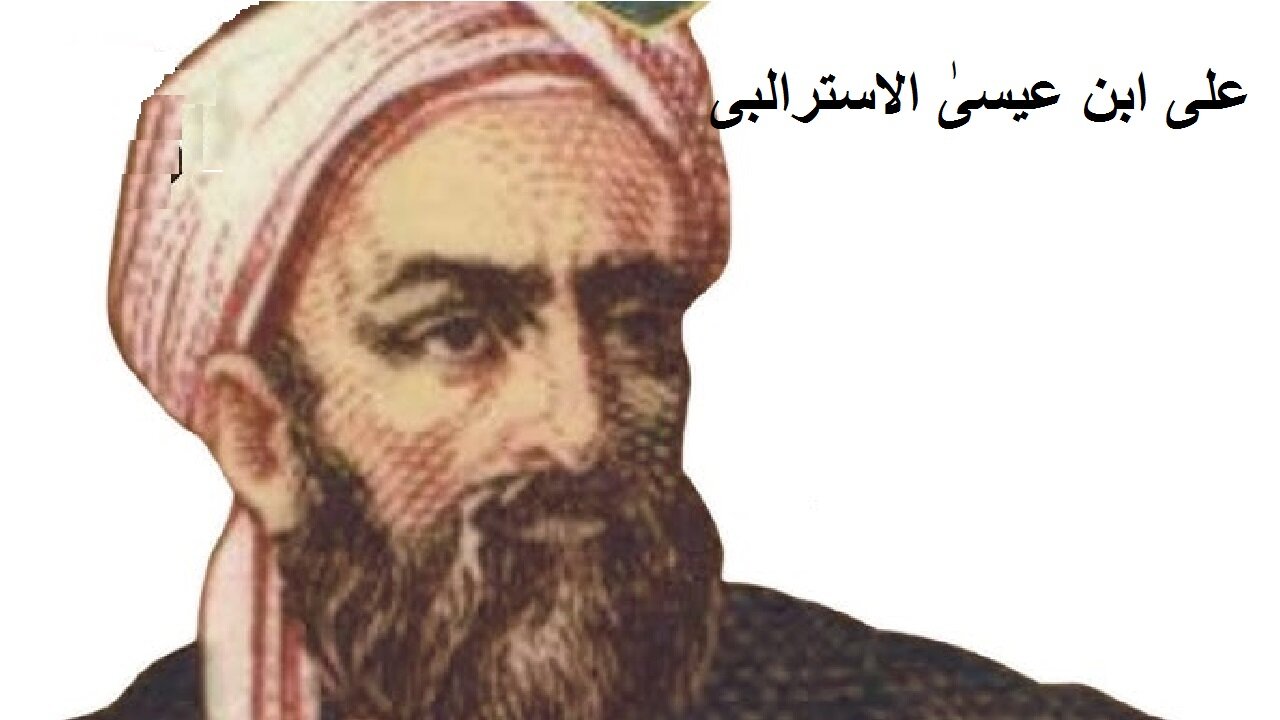Premium Only Content

Biography of Scholar Ali ibn Isa al-Asturlabi اسکالر علی ابن عیسیٰ الاسترالبی کی سوانح عمری
@islamichistory813 #aliibnisa #alasturlabi #biography #islamichistory #islamicscholars #islam #history #scholars #hadith #quran #sunnah #islamic #legacy #heritage #wisdom #fiqh #knowledge #tafsir #faith #guidance #islamicworld #muslim #islamiclegacy #imams #islamiccivilization #goldenage #truth #ummah
Biography of Islamic Scholar Ali ibn Isa al-Asturlabi
Assalamu Alaikum, sisters, brothers, friends and elders, we welcome you to a series of videos on Muslim heritage and Islamic scholars. and today in this video we will describe biography of
Ali ibn Isa al-Asturlabi
Ali ibn Isa al-Asturlabi was a distinguished Muslim scholar, astronomer, and maker of astrolabes who lived during the ninth century. His exact date of birth is not precisely recorded, but historians place his life during the Abbasid Caliphate when Baghdad was at its height as a global center of knowledge. He was born in Baghdad, the capital of the Islamic world at the time, which was known for its flourishing Bayt al Hikmah or House of Wisdom. The title al Asturlabi comes from his mastery in designing and constructing the astrolabe, a scientific instrument used for determining time, direction, and celestial positions.
Ali ibn Isa al-Asturlabi grew up in an environment where science, philosophy, and theology thrived. He showed a natural gift for observation and mechanical design. As a young man, he dedicated himself to studying astronomy and mathematics, fields that were essential for both religious and practical purposes. Astronomy played an important role in Islamic life since it was required to determine the direction of the qibla for prayer, the time of the five daily prayers, and the lunar calendar for Islamic months. Ali ibn Isa specialized in creating accurate astrolabes that served scholars, travelers, and navigators alike. His craftsmanship was so refined that his instruments were admired across the Islamic world.
His reputation as an expert instrument maker spread quickly, and his works were used in Baghdad and beyond. Ali ibn Isa al-Asturlabi was part of a community of scholars who laid the foundation for Islamic astronomy. He collaborated with other leading astronomers of his age, contributing to a tradition of science that influenced both the Muslim world and later European thought. His astrolabes were not merely functional but also works of art, showing a deep understanding of geometry and the movement of heavenly bodies.
Though little is known about his personal family life, Ali ibn Isa devoted his years to scholarly activity and practical innovation. His instruments helped ensure that Muslim communities could perform their religious duties with greater accuracy, which brought him recognition not only as a scientist but also as someone who served Islam through knowledge.
Ali ibn Isa al-Asturlabi died in Baghdad around the year 878. His death marked the end of an era for one of the most skilled instrument makers of his time. He was buried in Baghdad, a city that held many graves of scholars and saints. His burial place later became a site of quiet reverence. Over time, a small shrine was established at his grave. Though it was modest compared to the shrines of great saints or rulers, it became a meaningful spot for students and admirers of astronomy. Visitors would come to pay respects, remembering him as a man who contributed to both science and faith.
The shrine of Ali ibn Isa al-Asturlabi reflects the deep respect Muslims have for scholars who combined intellect with devotion. While it has not become a large pilgrimage site like those of famous saints, it still carries cultural and historical value. Local historians in Baghdad preserved his memory by recording his works and accomplishments, and his resting place stands as a reminder of the Abbasid era’s rich scientific tradition.
Ali ibn Isa’s legacy continues through the instruments that bear his name and through the tradition of scholarship that he helped nurture. His life demonstrates how Islamic scholars of the Golden Age bridged the gap between scientific inquiry and religious responsibility. By creating tools that guided prayer times and directions, he made science a service to faith. His shrine remains a symbol of this connection, reminding later generations of the harmony between knowledge and devotion.
Ali ibn Isa al-Asturlabi is remembered today as one of the finest instrument makers in Islamic history. His careful work and devotion to knowledge secured him a place among the pioneers of astronomy. His biography reflects not only his achievements but also the spirit of the age in which he lived, when Baghdad was the beacon of learning for the entire world.
With this, we ask for your permission until tomorrow and tomorrow we will narrate biography of . we will also narrate the history of her shrine. Finally, we pray to Allah Almighty to grant us the ability to act on the Quran and Hadith, Amen.
Allah Hafiz
==================================
-
 2:57
2:57
ISLAMIC HISTORY
4 hours agoHadith Nabwi Sahih Al-Bukhari Hadith No. 47 صحیح البخاری حدیث نمبر Ilm aur Noor ki Raahein
2 -
 9:53
9:53
Rethinking the Dollar
20 hours agoWhen Detroit Bleeds, America Suffer! Layoffs Have Begun
1.52K5 -
 18:36
18:36
Clownfish TV
22 hours agoYouTube Just NERFED YouTube Gaming... | Clownfish TV
2.43K12 -
 10:26
10:26
Silver Dragons
17 hours agoSilver is TAKING OFF Around the World
2.51K3 -
 1:36
1:36
From Zero → Viral with AI
1 day agoAI in Content Creation & Discovery – The New Era of Marketing
1.3K -
 1:20:10
1:20:10
FreshandFit
11 hours agoMiami Halloween Street Debate
204K100 -
 2:06:16
2:06:16
TimcastIRL
14 hours agoTrump Calls For NUCLEAR OPTION, END Filibuster Over Food Stamp Crisis | Timcast IRL
216K176 -
 3:58:54
3:58:54
SavageJayGatsby
12 hours ago🎃 Friend Friday – Halloween Edition! 👻🕷️
52.1K4 -
 16:16
16:16
Robbi On The Record
12 days ago $22.02 earnedThe Dark History of Halloween | What You Should Know
69.4K70 -
 58:18
58:18
Flyover Conservatives
1 day agoThe Truth About Halloween that You DIDN’T Know - Holiday Special - Historian Bill Federer | FOC SPECIAL Show
65.6K11